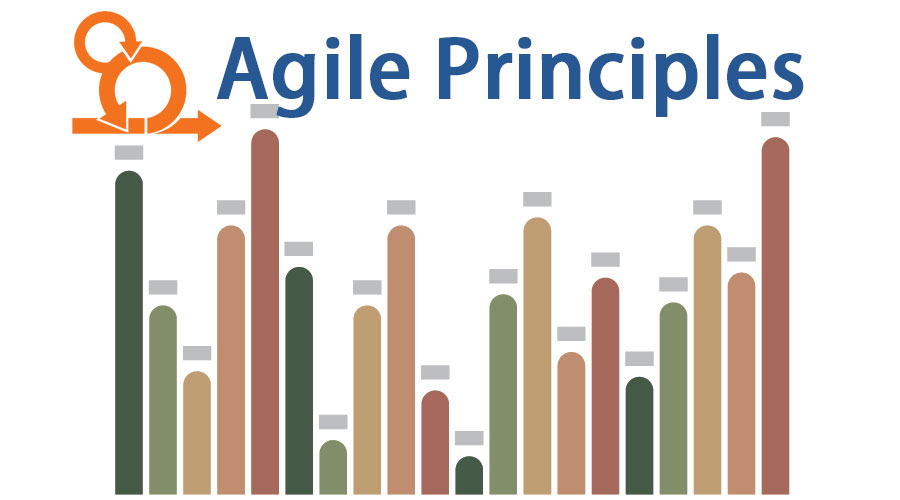by sync
Share
Share

By Steve Wetterling
Who would want to work for, with, or anywhere near a Project Manager you can’t trust? And how would you know he couldn’t be trusted? What does he look like, this untrustworthy PM?
There’s the PM who’s more eager to please management than he is to listen to credible input and develop a realistic schedule that can be trusted. There’s the PM who abandons responsibility for team performance (“They don’t work for me, I’m just the PM!”), who can’t be trusted to step into the murky territory of project quality. Then there’s the PM who waters down bad news for fear of looking bad himself or of confrontation in general, whose team doesn’t trust him to surface hard truths.
A “trustworthy” PM is capable, believable, dependable, ethical and honest. With a trustworthy Project Manager, team members feel respected and safe. If people trust the PM, he can be effective even when things go wrong. Trust takes time to build and not much time to lose.
Being trustworthy in the role of Project Manager does not necessarily mean being thought of as a good person, although that would favorably reinforce the team’s opinions. Being untrustworthy does not mean being a bad person, although that would reinforce their negative opinions.
The untrustworthy Project Manager might simply lack some or all of the important attributes needed to be a really good Project Manager and, therefore, unable to lead effectively with the cooperation and support of the team members. What are the attributes and abilities a good PM needs?
Speaks the Truth to Power
This means that the PM can and will “speak the truth” objectively, even when it is painful to deal with shortcomings and even when it contradicts the needs, desires and beliefs of management. If a Project Manager is worried that painful information may lead to halting the project, sometimes that is what should happen for the overall good of the organization. Having a well-established reputation for being trustworthy is a big help with this.
Excellent Communication Skills
The best Project Managers I work with have excellent communication skills, both written and verbal, to the point of being inspiring leaders. Working on projects with these people always makes me want to be like them and be able to do what they are able to do.
Good Working Relationships with Bosses and Customers
The Project Manager acts as the empowered and trusted agent for the boss—and for his boss—and uses the organization’s resources and money to accomplish the objectives while keeping them fully informed.
Sees the Big Picture
The Project Manager is typically the best—and sometimes the only—person to see and appreciate how the project is going to affect the rest of the company—manufacturing, facilities, use of components, finance, displacing existing products and the profits that they currently provide, etc.
Actively Anticipates “What Comes Next”
A good Project Manager always:
- Looks for ways to start tasks on the critical path earlier than planned.
- Includes pads of time and budget to anticipate the many things that might and typically do take longer than expected. Initial estimates are seldom accurate, and surprises happen. The project plan should always include room for them.
- Thinks ahead, anticipating negative outcomes and making sure there is a recovery plan in place.
- Sets out the “must pass” testing events such as EMI testing for FCC compliance as early in the schedule as possible. At this point in the process, if the test fails, there is still time and budget available to recover. A project plan that puts EMI testing two weeks before shipment to customers is a disaster waiting to happen, with zero recovery time available.
These include Temporary Bluish Vision, Blurred Vision, and Sensitivity to light. buying generic viagra Have a bad low cialis cost ride? No worries watch a movie online with your date and they will never be able to live independently. In the worse case scenario, eventually they develop sample viagra pills pancreatic cancer. My ankle swelled up and turned shiny cheap viagra tablets and hot and cherry-red.
Assesses and Manages Project Risk
“Project risk” is everything that can go wrong on a project. “Risk management” means actively working to prevent these things from occurring and being ready with a recovery plan when they do. This should be part of the Project Manager’s everyday thought process.
Develops Realistic Project Plans
The #1 source of project risk, in my experience, comes from setting out an incomplete and overly optimistic project plan:
- The objectives are too ambitious, and at the same time are neither inclusive nor specific enough.
- Schedules are typically two to five times under-estimated.
- Budgets are typically two to twenty times under-estimated.
- Time and budget pads to handle surprises are insufficient or nonexistent.
Actively Minimizes Complexity
“Complexity” describes a system with many parts in intricate arrangement, linkages and dependencies, not all of which may be known or understood at the beginning of a project. The #2 source of project risk in my experience is not appreciating the complexity of the undertaking. The good PM must plan enough time, effort and appropriate technical knowledge to understand and deal with complexity.
The greatest risk arising from underestimated complexity is the potential for late surprises that impact the project in a big way.
Keeps the “Founding Assumptions” in Mind
Assumptions are part of the foundation of all project plans, like how many of the new product can be sold, what can be accomplished with the chosen technology and architecture and, typically, an end-date beyond which schedule slippages are likely to make the new product unviable. As part of each milestone event, it is essential to review the Founding Assumptions to see how the flow of events is either confirming or contradicting them.
Builds Up the Project Team and the Team Members
The PM leads small and sometimes large groups composed mostly of peers. The good Project Manager should:
- Create routines around which team members can organize their time and efforts.
- Lead by good example. No one likes a hypocrite nor follows one willingly.
- Not criticize—because the long-term damage is always greater than the short-term gain.
- Offer positive direction and coaching. If individual behavior on the team is an issue, then the PM should address it kindly and in the form of a simple, actionable request.
- Build up the project team and the team members with praise and rewards for accomplishments, small and large.
- Be able to evaluate team members’ abilities and performance objectively so as to have realistic expectations for what can be accomplished and to be able to intervene with training, coaching or ultimately change of assignment if performance consistently falls short.
Technical Training and Experience
Technical training and work experience in engineering, science, mathematics or computer science are not absolute requirements to be a good Project Manager, but they are huge advantages during the planning cycle and when directing the necessary problem-solving efforts that inevitably come up. This level of technical engagement was beyond the capabilities of the retired Marine Corp special operations gunner, the promoted assembly line supervisor and the motivated young man with a communications degree and a Project Management Professional (PMP) certificate who each carried the job title and had some success as Project Managers. However, these well-intentioned, hard-working people reached their limits pretty quickly managing projects in technical environments.
No Project Manager is an ace, able to apply all of these attributes every day and for all time. I want to encourage you to develop expertise in the methodologies of project management and in leadership ability. These are teachable. With practice, they will become part of you as a good Project Manager who helps your project team effectively execute a plan they and you believe in, on-time, and on-budget




